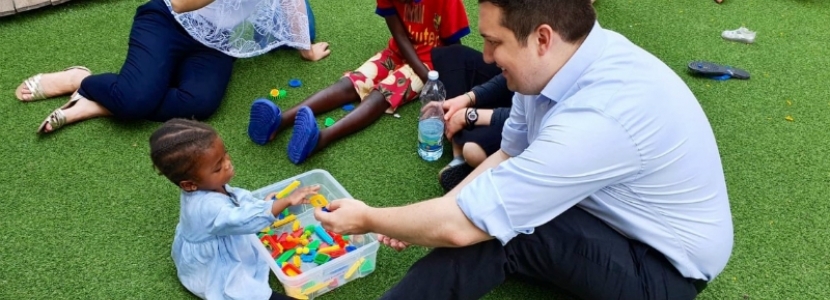
New figures show that the number and proportion of children living in a workless household is at a record low; there are more working households than ever before; and 12.5 million households have all members over 16 in employment, up 331,000 over the past year.
Work is the best route out of poverty, and I want to help people into work, so they have the security of a regular pay packet and can provide for their children.
Labour won’t allow the country to move on from Brexit and their dangerous plans would wreck the economy – meaning higher taxes, more debt and fewer jobs.
Key facts:
- More children than ever before are living in a working home. More children than ever before are now living in a household with a working adult, as the proportion of children in a home with at least one adult in work is 91 per cent. The number of children in households with all adults in work has increased by 262,000 in the last year, to 7.7 million – a rise of 1.7 million since 2010.
- The number of children in workless households is at a record low. Fewer than 1 in 11 children now live in a workless household, a record low. The number of children in workless households is down 760,000 since 2010 – a drop of almost 40 per cent – and a record low. The number of children living in households where all members had never worked, decreased by 58,000 over the year to 172,000.
- There are more working households than ever before. There are 12.5 million households in which all people are working, up over 1.5 million since 2010, a record high. This means there are 23.1 million people aged 16 to 64 in working households, up 1.1 percentage points over the year – to a new record high.
- Under the Conservatives an average of 1,000 people have gone into work every day, supporting people to take control of their lives and build themselves a better future. We’ve seen over 3.7 million more people get the security of bringing home a regular pay packet. The unemployment rate is at its lowest in 45 years.
Labour would wreck our economy and leave people with less money in their pockets:
- The number of children living in workless households increased in the last four years of Labour. Between 2006 and 2010, the number of children living in workless households increased by 119,000 (6 per cent) from 1.828 million to 1.946 million – that’s an increase from 15.7 per cent of all households to 16.6 per cent of all households (ONS, Children living in long-term workless households in the UK: 2017, Table A1, 31 October 2018, link).
- Labour have committed to spending £1.2 trillion over the next five years – wrecking our economy and leaving ordinary people paying the price. Of this total, Labour have made £651 billion worth of spending commitments that are considered day-to-day spending and therefore cannot be borrowed for (The Telegraph, 10 November 2019, link; The Conservative Party, The Real Cost of a Labour Government, 10 November 2019, available upon request).
- Corbyn’s spending spree would mean each taxpayer in the UK could see their income tax rise by £2,400 a year – meaning workers would lose a month’s wages in higher taxes to pay for Corbyn’s reckless spending plans. Corbyn’s Labour would open up a huge black hole in the nation’s finances and hard-working people will be the ones that suffer. In order to pay for his policies, he will not only have to massively increase borrowing and debt, he will also need to hike up taxes by £2,400 per person – this is equivalent to an entire month’s pay for the average earner (The Sun, 11 November 2019, link).
- Labour have proposed 12 punitive taxes which would hit hardworking people with endless tax hikes that would leave them with less money in their pockets. These tax hikes show Labour have broken their promise not to raise taxes for 95 per cent of people – with a marriage tax and a pension tax, for example, hitting ordinary people (The Sun, 27 November 2019, link).
To keep the jobs miracle going, and not jeopardise the stability needed for Croydon's working families, you've got to vote for it.
Vote Conservative on 12th December.


